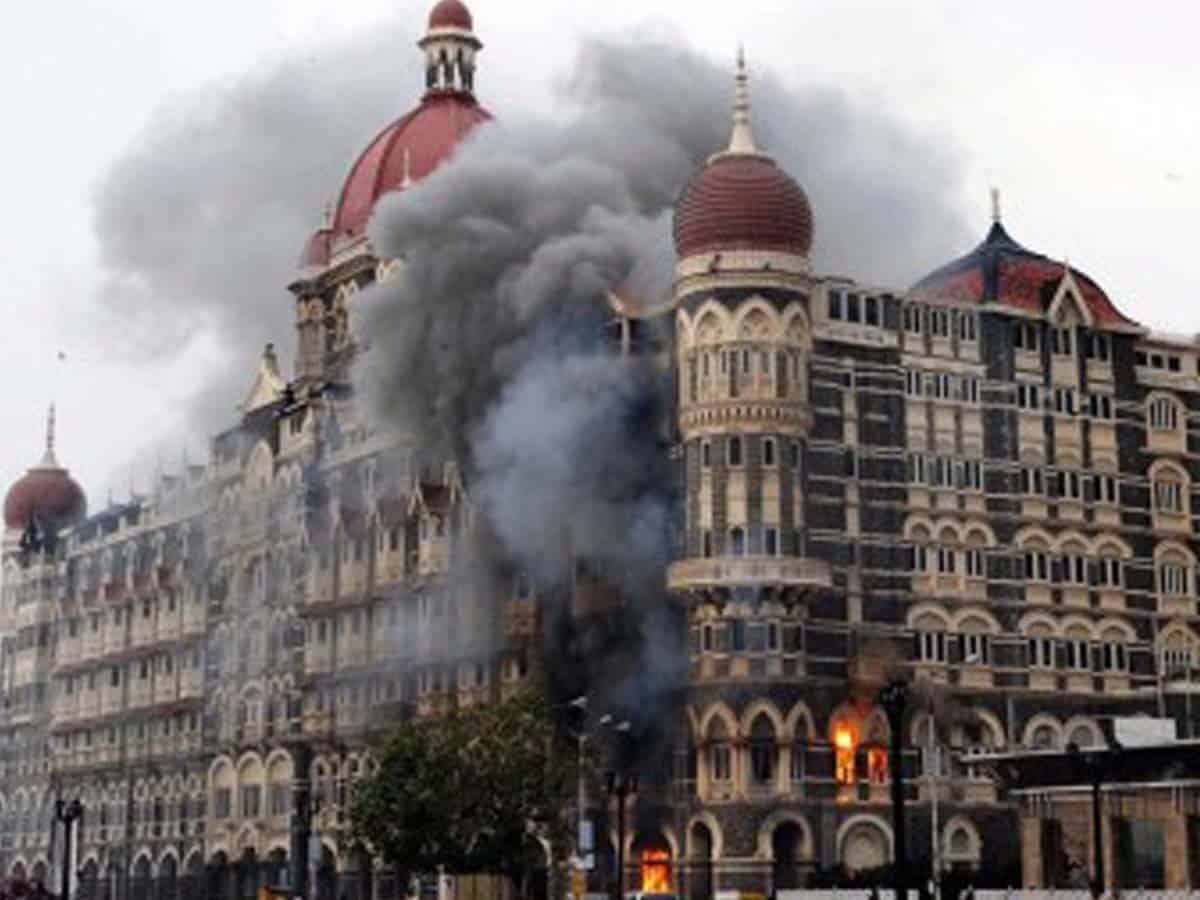
Today – Friday, November 26, 2021, marks the 23rd anniversary of the 26/11/2008 Mumbai terror attacks that left close to 180 people of various nationalities dead, and many more wounded. That is one way of interpreting the attack, which shook the foundation of the financial capital of India, and the nation watched with an extreme sense of helplessness as terrorists mowed their victims. The attack did end, but it ended on the TV screens, not for the rest of the nation. It was reduced to a TV event, nothing more than that.
Till date, there is no concrete anti-terrorism policy in place, terrorists are not hesitant to strike.
In November 2008, when terrorists struck in Mumbai, Maharashtra, Assembly elections were in progress in Jammu and Kashmir. Then Congress General Secretary Rahul Gandhi was leading the party’s campaign in the state( now erstwhile) on the days when terrorists were on a killing spree. One had expected that icon of the then ruling party would spell out the anti-terrorism policy. He was the most influential voice in the party, as he was heir apparent to Congress president Sonia Gandhi, and his words mattered to his party’s government at the Centre.
But this is all that he said while speaking at an election rally in Udhampur in Jammu and Kashmir, “The objective of the terrorists ( in Mumbai) is to frighten, terrorize and divide the people, and as they might try to do so, we would get united and not bow to terrorism at any cost, rather we will defeat terrorism.” These turned out to be obsolete cliches. It was neither a policy statement, which he could have made as J&K was, and is, known as the victim of terrorism.
It turned out that it was a mere political sloganeering. Nothing concrete follo0wed and the situation remained as cool on the political front, except for a series of statements – neither the masterminds of the terrorist assault were punished by Pakistan, nor the world veered around India’s standpoint. These are weaknesses that have cost the nation quite heavily.
The point is that the nation continues to suffer because of terrorism and, it is suffering more because terrorism needs to be tackled with concrete strategies and not by shambolic speeches or statements. The first requisite is to unite the whole nation against terrorism and its perpetrators. All the divisions need to be bridged, and in that people at large play a big role. Bridging the gaps should be involve-al strategy in which the government, policymakers, opinion leaders, political parties and leaders should appear on the same page. Fighting terrorism may be the main task of the security agencies, but a wholesome approach is needed. That is missing.
India is a specific target of terrorists. One, of course, it is as much under terror threat as the rest of the world, because terrorists don’t respect boundaries, second, what we all know, is that Pakistan is causing terror troubles, directly and also by instigating the sections of society, motivated to work against the government and the system. The internal threat poses a greater danger, as they operate under shadows, very rarely visible before the attacks take place. There is a global threat as also the specific threat from Pakistan. More worrying, however, is the way the youth are getting lured to the idea of extremism in which terrorism finds its unbridled growth. These ideas need to be countered with ideas. That will prove more effective and fruitful. A strategy to involve-all in the fight against terrorism is the need of the hour.
Arun Joshi is a Senior Journalist, Political Analyst based in Jammu and Kashmir. He has authored four books, including, “Eyewitness Kashmir: Teetering on Nuclear War”. He has worked with Hindustan Times, The Times of India, The Indian Express and The Tribune.
Views expressed are personal

